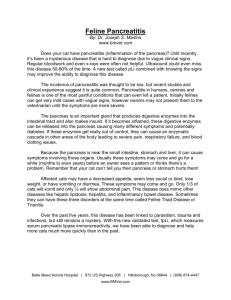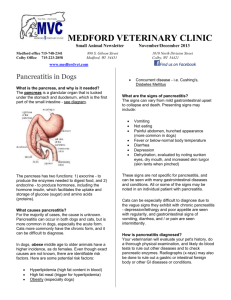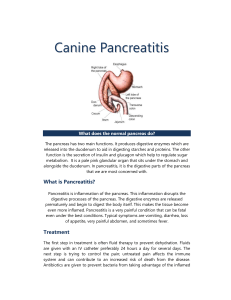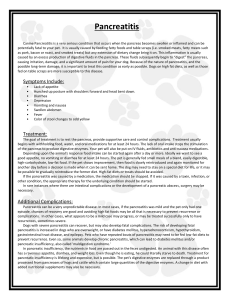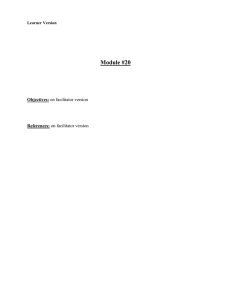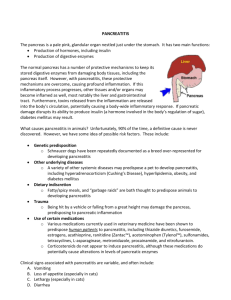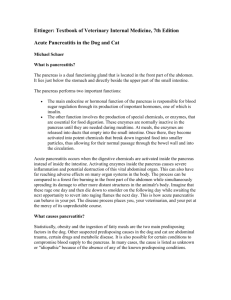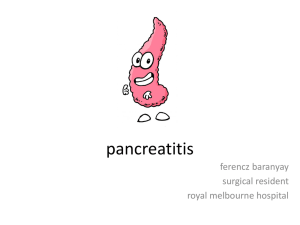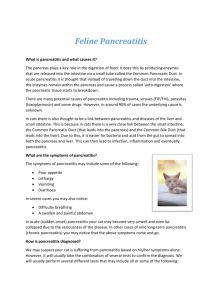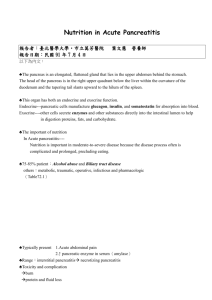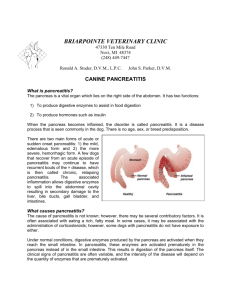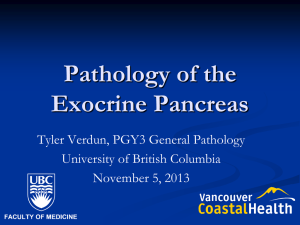Riverside Animal Hospital Information about Canine Pancreatitis
advertisement
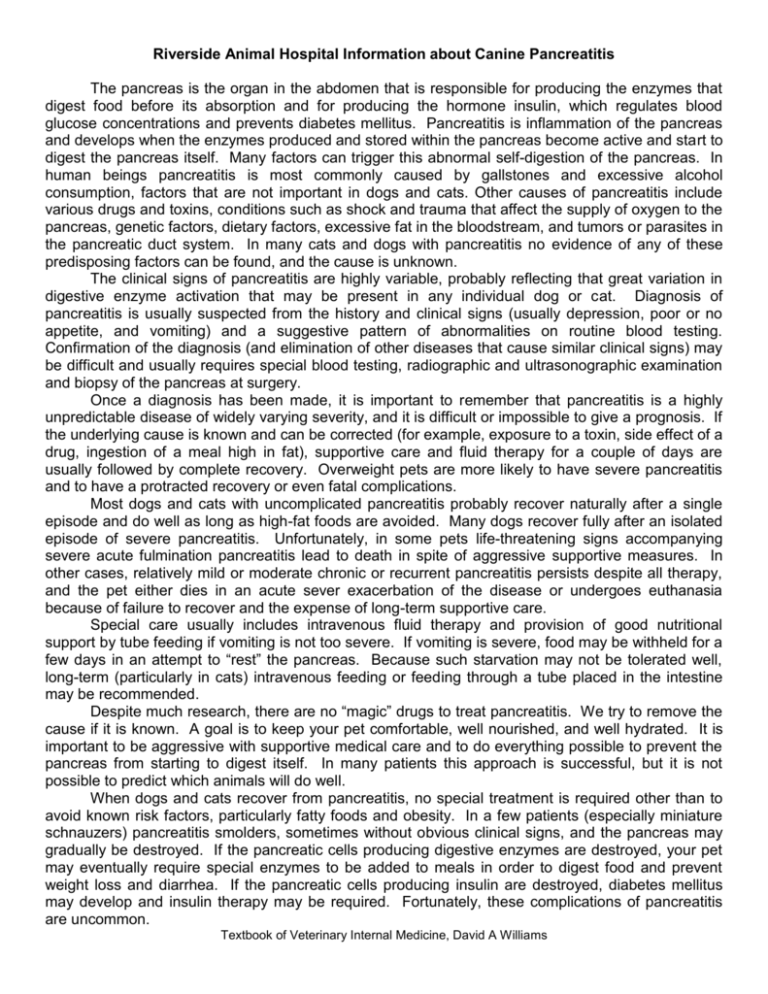
Riverside Animal Hospital Information about Canine Pancreatitis The pancreas is the organ in the abdomen that is responsible for producing the enzymes that digest food before its absorption and for producing the hormone insulin, which regulates blood glucose concentrations and prevents diabetes mellitus. Pancreatitis is inflammation of the pancreas and develops when the enzymes produced and stored within the pancreas become active and start to digest the pancreas itself. Many factors can trigger this abnormal self-digestion of the pancreas. In human beings pancreatitis is most commonly caused by gallstones and excessive alcohol consumption, factors that are not important in dogs and cats. Other causes of pancreatitis include various drugs and toxins, conditions such as shock and trauma that affect the supply of oxygen to the pancreas, genetic factors, dietary factors, excessive fat in the bloodstream, and tumors or parasites in the pancreatic duct system. In many cats and dogs with pancreatitis no evidence of any of these predisposing factors can be found, and the cause is unknown. The clinical signs of pancreatitis are highly variable, probably reflecting that great variation in digestive enzyme activation that may be present in any individual dog or cat. Diagnosis of pancreatitis is usually suspected from the history and clinical signs (usually depression, poor or no appetite, and vomiting) and a suggestive pattern of abnormalities on routine blood testing. Confirmation of the diagnosis (and elimination of other diseases that cause similar clinical signs) may be difficult and usually requires special blood testing, radiographic and ultrasonographic examination and biopsy of the pancreas at surgery. Once a diagnosis has been made, it is important to remember that pancreatitis is a highly unpredictable disease of widely varying severity, and it is difficult or impossible to give a prognosis. If the underlying cause is known and can be corrected (for example, exposure to a toxin, side effect of a drug, ingestion of a meal high in fat), supportive care and fluid therapy for a couple of days are usually followed by complete recovery. Overweight pets are more likely to have severe pancreatitis and to have a protracted recovery or even fatal complications. Most dogs and cats with uncomplicated pancreatitis probably recover naturally after a single episode and do well as long as high-fat foods are avoided. Many dogs recover fully after an isolated episode of severe pancreatitis. Unfortunately, in some pets life-threatening signs accompanying severe acute fulmination pancreatitis lead to death in spite of aggressive supportive measures. In other cases, relatively mild or moderate chronic or recurrent pancreatitis persists despite all therapy, and the pet either dies in an acute sever exacerbation of the disease or undergoes euthanasia because of failure to recover and the expense of long-term supportive care. Special care usually includes intravenous fluid therapy and provision of good nutritional support by tube feeding if vomiting is not too severe. If vomiting is severe, food may be withheld for a few days in an attempt to “rest” the pancreas. Because such starvation may not be tolerated well, long-term (particularly in cats) intravenous feeding or feeding through a tube placed in the intestine may be recommended. Despite much research, there are no “magic” drugs to treat pancreatitis. We try to remove the cause if it is known. A goal is to keep your pet comfortable, well nourished, and well hydrated. It is important to be aggressive with supportive medical care and to do everything possible to prevent the pancreas from starting to digest itself. In many patients this approach is successful, but it is not possible to predict which animals will do well. When dogs and cats recover from pancreatitis, no special treatment is required other than to avoid known risk factors, particularly fatty foods and obesity. In a few patients (especially miniature schnauzers) pancreatitis smolders, sometimes without obvious clinical signs, and the pancreas may gradually be destroyed. If the pancreatic cells producing digestive enzymes are destroyed, your pet may eventually require special enzymes to be added to meals in order to digest food and prevent weight loss and diarrhea. If the pancreatic cells producing insulin are destroyed, diabetes mellitus may develop and insulin therapy may be required. Fortunately, these complications of pancreatitis are uncommon. Textbook of Veterinary Internal Medicine, David A Williams
